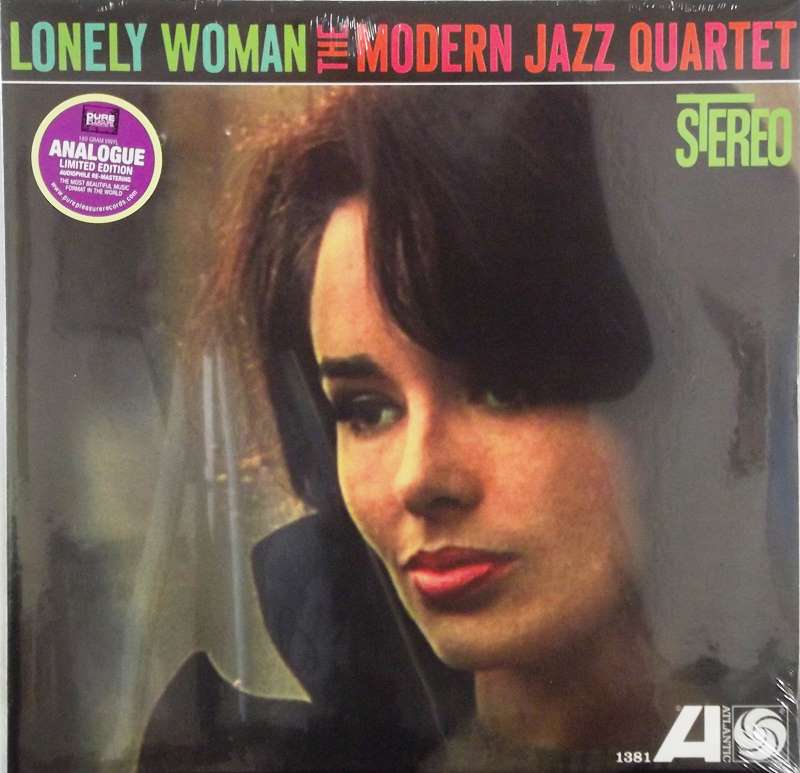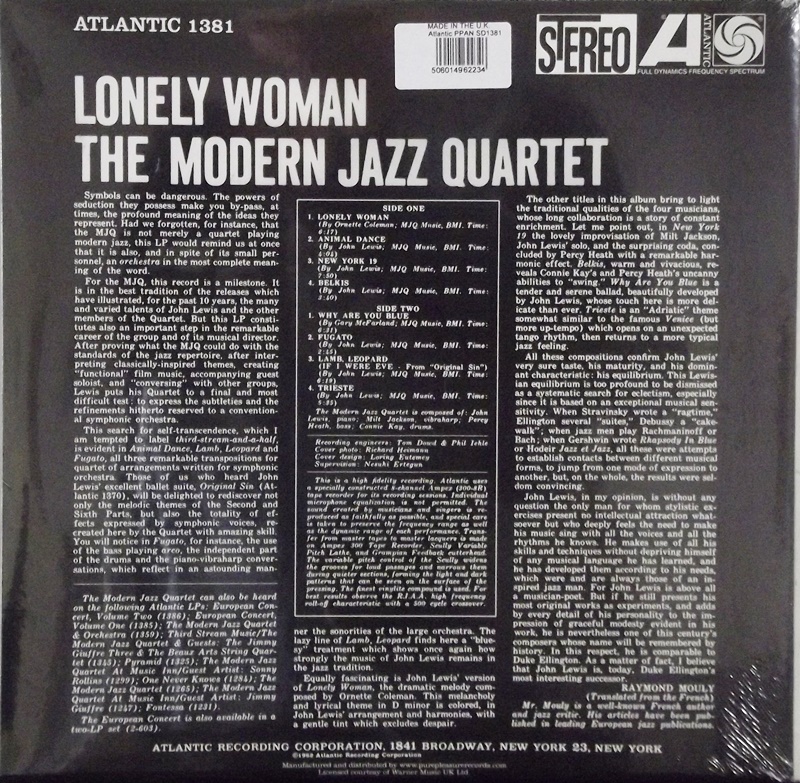

| Product Code: | PPAN SD1381 |
| Artist: | Modern Jazz Quartet |
| Origin: | UK |
| Label: | Pure Pleasure Records (2016) |
| Format: | LP |
| Availability: | In Stock |
| Condition: |
Cover: M
Record: M
|
| Genre: | Jazz N |
Brand new sealed Limited Edition, Reissue, Remastered, Stereo, 180 gram vinyl.
Lonely Woman is an album by American jazz group the Modern Jazz Quartet featuring performances recorded in 1962 and released on the Atlantic label.[3]
The Modern Jazz Quartet were a dominant creative and commercial force in the jazz world of the 1950s, producing a string of near-classic albums along the way, and even though there were changes all around them (both socially and musically) as the 1960s began, they still managed to stand alongside their peers and create one final studio masterpiece in the form of 1962's Lonely Woman. While the creative changes in jazz were major ones - modal, free jazz, post bop, avant-garde - it's not surprising that The MJQ were able to hold their own during this period. They were always pushing the boundaries of jazz, and even to this day they don't often get their proper due as the adventurous and experimental group they were throughout their career.
The MJQ were the perfect embodiment of both the individual and the collective in jazz music. Each musician was highly talented and brought their own visions to the table, but it's impossible to imagine any of them creating the music they made together without each other contributions. Much of this is due, of course, to John Lewis - the "musical director" of the group - whose interest in what would be dubbed the "Third Stream" (a synthesis of classical and jazz music) was a driving force in The MJQ's music in the late 1950s. These sensibilities can be heard in full on Lonely Woman, in particular on "Lamb, Leopard (If I Were Eve)" which combines some symphonic sensibilities with bluesy jazz lines. He may have had some "heady" ideas for his music, but when he was performing with The MJQ the music never lost it's swing, even on his more somber pieces.
But, let us not forget the great Milt Jackson, the cat who held The MJQ together, with his ringing vibes and subtle yet complex technique, who was able to take Lewis's ideas and compositions and keep the group in the jazz pocket. Along with the rhythm section of Kay and Heath, Jackson helps elevate a beautiful song like "New York 19" to another level. Lewis's piano playing is wonderful, but it's Jackson's improvised solo that keeps the listener's interest. In 1962 it was Lewis who was considered the mastermind (the composer, the visionary) behind the group, but as the year's have passed Jackson's contributions seem equally vital to the lasting legacy of The MJQ.